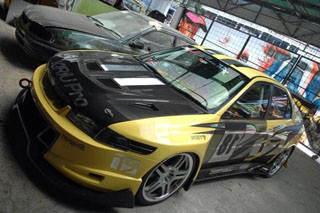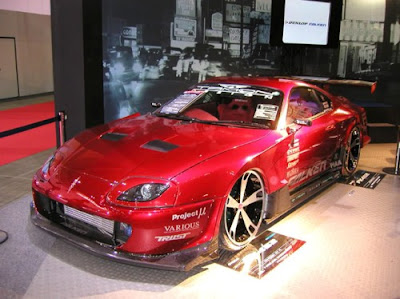
Following the Fluence Z.E. all-electric sedan concept's unveiling at the 2009 Frankfurt Motor Show and last December's presentation of the Kangoo Van Z.E. prototype at the COP 15 (United Nations Climate Change Conference) in Copenhagen, Renault today unveiled the finalized designs of both models.
 The French automaker said that customers in Europe and in a few more select countries including Singapore, South Africa and Russia, who are interested in the two models can pre-reserve their vehicle at "www.renault-ze.com" with first deliveries expected in the first half of 2011.
The French automaker said that customers in Europe and in a few more select countries including Singapore, South Africa and Russia, who are interested in the two models can pre-reserve their vehicle at "www.renault-ze.com" with first deliveries expected in the first half of 2011.
The Fluence Z.E. will be built at the OYAK-Renault factory in Bursa, Turkey, on the same production line as the internal combustion engine-powered versions of Fluence.
It is powered by an electric motor producing 70kW / 94HP and 226Nm / 167.7 lb-ft of torque that motivates the front wheels through a direct drive transmission.
The capacity of the Fluence Z.E.'s lithium-ion battery is 22kW/h. The battery itself tips the scales at 250kg and is located behind the rear seats.
The driver can charge the battery in one of three ways: through a household supply, which will fully charge the battery in between six and eight hours; at fast charge stations using a 32A 400V supply in approximately 30 minutes (available from 2012), and via a QuickDrop battery switch system that will enable the car's battery to be swapped in approximately three minutes at bespoke battery exchange stations.
In addition, an energy recovery system enables the battery to be charged when the car decelerates.
Renault said that fully charged, the Fluence Z.E. has a driving range of up to 160km or about 100 miles, while the car's top speed is electronically limited to 130km/h or 80mph.
The electric version of Fluence stands at a length of 4,750mm, which is 130mm longer than its internal combustion-engined brethren in order to accommodate the battery behind the rear seats.
Cosmetic changes over the standard model include a blue-hued tint on the headlamps, tail lamps, foglamps, logos and boot trim, gloss black exterior mirror housings, body-colour painted side protective mouldings and the battery charge flaps on both wing.
Also, the rear bumper incorporates a black diffuser, while the wheels have been specially designed to minimize turbulence.
Inside, the rev-counter has been replaced by a bespoke instrument, which displays data concerning remaining range and battery charge, while the decorative trim of the dashboard is exclusive to the model.
Continuing with the Kangoo Z.E., the small van is powered by a 44kW /59HP electric motor with 226Nm of peak torque that drives the front wheels.
It features a lithium-ion battery that is located in a central position beneath the floor, enabling the Kangoo Z.E. to boast the same carrying capacity as the internal combustion-engined model.
The battery can be charged via a household mains supply (16A 220V) in between six and eight hours, offering an operational range of 160 km or 100 miles.
Later on, Renault's range of electric cars will be enhanced with the presentation of the production versions of the Zoe Z.E. small coupe and the Twizy Z.E. urban vehicle that boasts a tandem seating layout.
The French automaker added that it estimates electric vehicles will account for 10 per cent of the world market by 2020 and that the Renault-Nissan Alliance is investing €4 billion in its zero emissions programme.

































